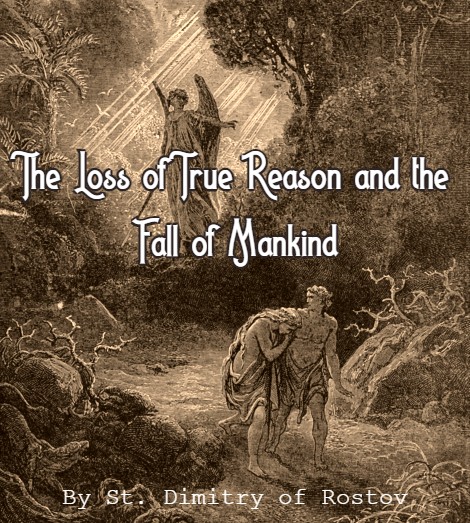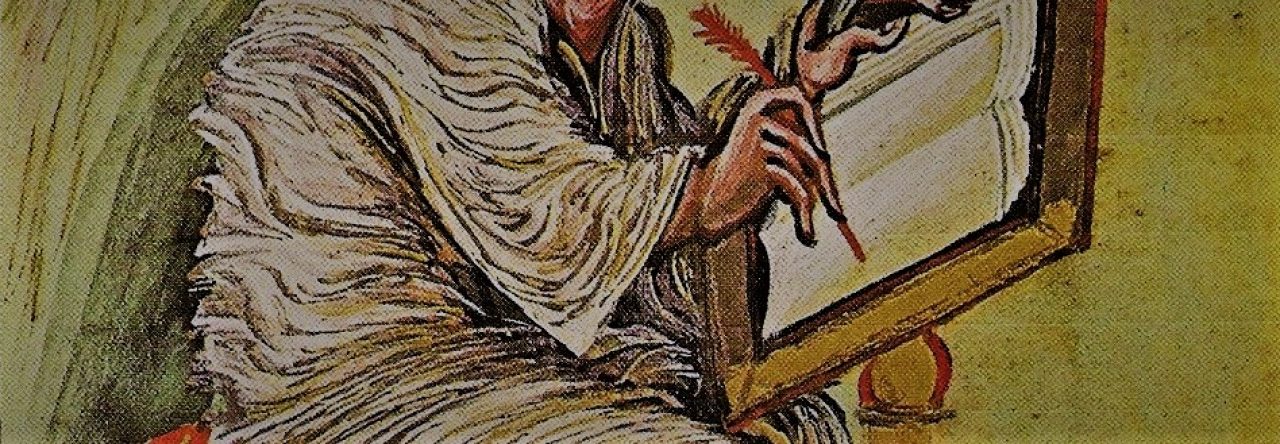Below is another portion of my current continued effort to translate more of the works of St. Dimitry of Rostov. The preceding translations may be found through these links –
Chapter 2: A True Mind and an Evil Mind.
Chapter 3: Without the Purification of the Mind, Everything is Foolishness.
Here, I offer Chapter 1, which original title is, The first cause of Adam’s fall was imprudence and complete ignorance of himself. The blog title I have chosen is my own for the purpose of my blog. All of these chapters are from St. Dimitry’s work, The Spiritual Alphabet.
Originally I focused on translating chapters 2 and 3 first because they spoke more evidently to the very important theme of true knowledge, on which topic I had already written 3 articles. The first article is titled Just Trust the Experts? If the reader is interested further, the links to the following two articles on the subject are contain in it.
It is very evident from teachings of St. Dimitry and others, that true and right reason and knowledge comes from the Holy Trinity alone. In fact all the “reason” of the world, if it rejects God, becomes only madness and foolishness. Physical knowledge is only perfected in the divine reason of the Holy Spirit. Thus, the only source of true and right reason is the Lord.
St. Dimitry of Rostov is called “the Chrysostom” of Rus’. Here is a link to a beneficial site with a number of sources about his life, for the reader’s further spiritual profit.
My current translation goal, by God’s grace, is to complete translating the first collection of chapters from The Spiritual Alphabet.

Chapter 1
The first cause of Adam’s fall was imprudence and complete ignorance of himself
1. Many people ascribe numerous and various causes for Adam’s fall: some say unbelief, others say disobedience, a third group will say pride and desire for preeminence, and still others will give various other causes. But we do not recognize any of these as the primary cause, except for imprudence1 and failure to examine all things.
2. In Paradise, to do and to keep was the first commandment given Adam, that is, to do with the mind2 in order to comprehend well, and to keep the commandment so as not to break it. But since he did not do with mindfulness, he did not keep the commandments, and because he did not practice mental action above all else, unbelief arose in Adam – disbelief in God, Who spoke and commanded; then from unbelief were born disobedience and transgression; from the transgression came the falling away from the Lord’s grace and estrangement from His Divine love.
3. If Adam had comprehend the Benefactor and reflected upon the commandment, and if he had believed, he would not have disobeyed the commandment; nor would he have eaten of the forbidden tree and been cast out of Paradise, and fallen into death and corruption, and God would not have performed so many miracles for us until He returned us to reason and the knowledge of all things.
4. Since Adam fell away from God and His grace through no other cause but imprudence, we can be united to Him in no other way but through reason and the knowledge of all things. For he who has truly known himself has know God, and whoever knows God has known himself – he is united with God and, having rested from all his works and labors, he has entered the sanctuary of God and always brings intelligent service to God.
5. Yet, no one can know God until he first knows himself; he will not know himself as he should, unless he first comes to the knowledge of creation and to the contemplation of all things visible and intelligible in the world. And when he comes to the knowledge of creatures, then he can come to the knowledge of himself and God. In this manner he will come into perfect union with God in love.
6. Thus, if anyone truly wants to know the Lord, and to know himself and be united with Him in love, he must begin to perceive all of creation, visible and intelligible; so as to attain contemplation of all things and all creation: from Whom and for what all this exists – so that not one single thing is concealed from him and does not produce perplexity; then comes knowledge of oneself and the whole mystery of oneself; following this is knowledge of God and all His ineffable blessings. Thereby a man comes to perfect knowledge of all things. For it is fitting first to comprehend everything lower and then the Highest: we must not descend from the highest to the lowest, but ascend from the lowest to the highest. Therefore, God has placed before our eyes the whole of creation and the whole structure of the world, as it were, a kind of school or a mirror, so that by learning, we would ascend from the lower to the Highest. But if we do not know what is below, then how can we understand what is Exalted?
7. Faith is born from reason and knowledge, and from faith – keeping the commandments of God; from keeping the commandments of God – trust in God; from trusting in God – Divine love, which gradually multiples and leads to gradual union with God and the fulfillment of the law and the prophets.
8. As reason flourishes, so faith grows; to the extent that faith increases, to that extent the virtues are multiplied, and thereby trusting hope in God is intensified; and according to the measure of a person’s trust, with that measure he loves God, and according to the measure that one loves God, to that degree he unites with Him and delights in His Divine glory.
9. Unbelief is born from imprudence, and disobedience is born from unbelief, and every sin and transgression are born from disobedience. If someone comprehends nothing, how can he believe? How can a person devoid of faith, and thus he understands nothing, keep the commandments of the Lord? Further, how can he who does not keep the commandments of the Lord have trusting hope in God and love for Him? It is not at all possible.
10. Thus, first of all, it is appropriate to learn not only external work, but also mental action: reason and knowledge. He who has learned the reason and knowledge of all things, with ease believes everything and keeps all the commandments of the Lord, trusts in God, loves Him with all his heart, and unites with Him in one: everything transpires in God and God abides in him. Such a person receives the resurrection of the soul before the [general] resurrection and inherits eternal life before the end of [earthly] life, because in him, through a life of reason and knowledge, the silent grave of death is defeated, as it is said, “And this is eternal life, the at they may know Thee, the only true God,”3 and not to have knowledge of Him is death.
1Or could be rendered “foolishness.”
2In Russian разум, which may be rendered in English as reason, mind, brain, intellect, wit, and such. In this translation I will also, in certain limited instances, use mindful.
3John 17:13

Thank you father for this excellent work!
Fr. Stephen Lourie
This message was sent from my mobile phone; please excuse brevity and spelling errors. God bless you!
LikeLiked by 1 person
Pingback: Links for 30 Sept. 2023 – Just the Links
Pingback: Links for 8 Oct. 2023 – Just the Links
Pingback: GARLINGTON: Teachers (And Students) Behaving Badly